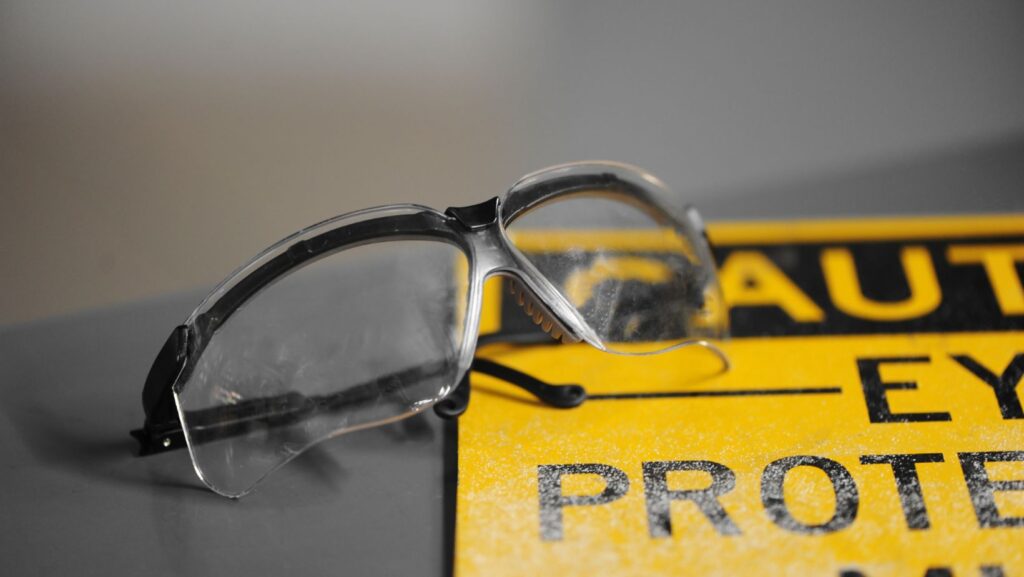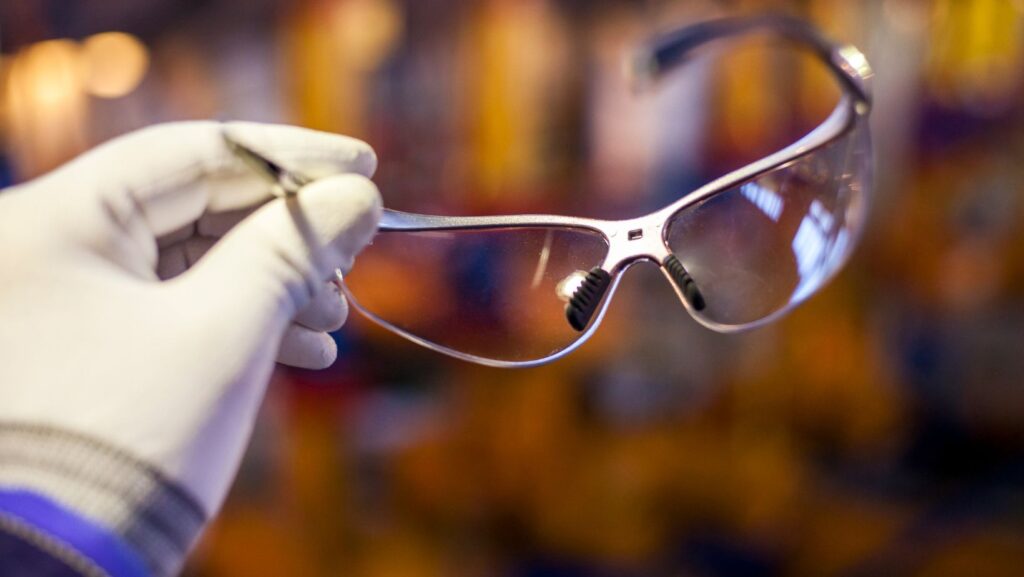Prescription Glasses Do Not Provide Adequate Eye Protection because They

I’ve been wearing prescription glasses for years, and while they have greatly improved my vision, I’ve always wondered if they provide enough protection for my eyes. In my quest for answers, I delved into the world of eye health and discovered some surprising facts. It turns out that prescription glasses, although beneficial for vision correction, may not offer adequate protection against certain eye hazards. In this article, I’ll explore the limitations of prescription glasses in terms of eye protection and discuss alternative options to keep our eyes safe.
When it comes to eye protection, we often assume that wearing prescription glasses is enough to shield our eyes from harm. However, recent research suggests otherwise. Prescription glasses primarily focus on correcting vision problems and may not provide sufficient defense against various eye hazards. From harmful UV rays to flying debris, our eyes are exposed to a range of potential dangers that require more than just corrective lenses. In this article, I’ll delve deeper into the limitations of prescription glasses and shed light on the importance of additional eye protection measures.
The Importance of Eye Protection
When it comes to protecting our eyes, we often rely on prescription glasses to correct our vision. While these glasses may be essential for improving our sight, it’s important to recognize their limitations in terms of providing adequate eye protection. Prescription glasses fall short in safeguarding our eyes from potential hazards that we may encounter in our daily lives. Here are a few reasons why prescription glasses alone may not be enough:
- UV Protection: Prescription glasses may not effectively shield our eyes from harmful ultraviolet (UV) rays. Prolonged exposure to UV rays can lead to various eye conditions, including cataracts and damage to the retina. To adequately protect our eyes, we need specialized sunglasses that offer 100% UV protection.
- Impact Resistance: Prescription glasses may not be designed to withstand impact from flying debris or objects. For individuals working in construction, manufacturing, or other hazardous environments, it’s crucial to wear safety glasses or goggles that provide the necessary impact resistance. These protective eyewear options are specifically engineered to withstand high-velocity impact and reduce the risk of eye-related injuries.
- Sports and Physical Activities: Engaging in sports or physical activities requires additional eye protection. Prescription glasses may not have the necessary features to ensure eye safety during vigorous movements or contact sports. To prevent eye injuries, it’s essential to wear sports-specific goggles or protective eyewear that are designed to stay securely in place and provide optimal protection.
While prescription glasses are effective in correcting vision problems, they may not provide sufficient eye protection. To ensure our eyes are adequately shielded from potential hazards like UV rays, flying debris, or impact, it is crucial to use specialized eyewear designed for each specific situation. Whether we’re working in a hazardous environment, participating in sports, or simply enjoying time outdoors, prioritizing the safety of our eyes is paramount. Investing in appropriate eyewear can help protect our vision and maintain our eye health in the long run.

Understanding Prescription Glasses
Prescription glasses are a common solution for correcting vision problems. They are designed to help individuals see clearly by addressing refractive errors such as nearsightedness, farsightedness, and astigmatism. These glasses are customized based on the specific prescription provided by an eye care professional, ensuring that the lenses have the correct power and curvature to bring the wearer’s vision to optimal clarity.
One important thing to note about prescription glasses is that their main purpose is vision correction. While they excel at improving eyesight, they are not specifically designed to provide comprehensive eye protection. This is an important distinction to remember, as many people mistakenly assume that wearing prescription glasses alone is enough to safeguard their eyes in various situations.
When it comes to protecting your eyes, prescription glasses have their limitations. Here are a few reasons why they may not provide adequate eye protection:
- Limited UV protection: Prescription glasses may not offer sufficient protection against harmful ultraviolet (UV) rays from the sun. Overexposure to UV radiation can lead to various eye conditions like cataracts, macular degeneration, and even cancer. To combat this, it’s crucial to wear sunglasses or specialized eyewear with 100% UV protection, especially during outdoor activities or sunny days.
- Insufficient impact resistance: While prescription glasses can withstand everyday wear and tear, they may not provide adequate protection against flying debris, particles, or projectiles. For individuals working in hazardous environments or engaging in sports or physical activities, it is essential to consider eyewear specifically designed for impact resistance, such as safety glasses or goggles.
- Lack of specialized features: Prescription glasses typically lack certain features found in specialized eyewear. These features can include polarized lenses to reduce glare, anti-fog coatings for better visibility, or wraparound styles for enhanced peripheral protection. Such specialized eyewear is designed to address specific needs and ensure optimal eye safety in various situations.
Understanding the limitations of prescription glasses is crucial for prioritizing comprehensive eye protection. While they are excellent for correcting vision problems, it’s important to supplement their use with appropriate eyewear that offers UV protection, impact resistance, and other specific features as required.
Remember, when it comes to protecting your eyes, it’s always better to be proactive and invest in specialized eyewear tailored to your individual needs and activities.
